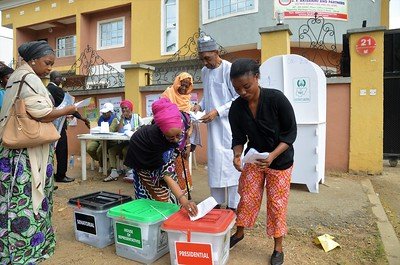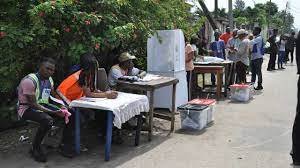
By Ameh Gabriel
Political apathy, defined as a lack of interest or concern towards political processes, has become increasingly prevalent in Nigeria. This growing disengagement poses significant challenges to the nation’s democratic health, as active citizen participation is crucial for a functioning democracy.
Declining Voter Turnout: A Troubling Trend
The 2023 general elections in Nigeria highlighted a concerning decline in voter participation. Despite over 93 million registered voters, only approximately 25 million cast their ballots, resulting in a voter turnout of about 26.72%—the lowest since Nigeria’s return to democracy in 1999. (elections.dataphyte.com)
This decline continues a worrying trend from previous elections; for instance, the 2019 elections saw a turnout of 34.75%, already a significant drop from earlier years. (Premiumtimesng.com)
Factors Contributing to Political Apathy
Several interrelated factors have contributed to this growing political apathy:
- Electoral Violence and Intimidation: The prevalence of violence during elections has deterred many Nigerians from participating. Incidents of voter intimidation and clashes at polling stations create an atmosphere of fear, discouraging citizens from exercising their voting rights.
- Distrust in the Electoral Process: Perceptions of widespread electoral malpractice, including vote rigging and manipulation, have led to a loss of faith in the electoral system. When citizens believe that elections are neither free nor fair, they are less likely to participate.
- Unfulfilled Political Promises: A history of politicians failing to deliver on campaign promises has fostered cynicism among the electorate. This sense of betrayal diminishes the perceived value of voting, as citizens doubt that their participation will lead to meaningful change.
- Socioeconomic Challenges: Widespread poverty and economic hardship can shift focus away from political engagement, as individuals prioritize immediate survival over civic duties.
- Lack of Political Education: Insufficient awareness about the importance of political participation and understanding of the electoral process contributes to voter apathy. Without proper civic education, citizens may feel disconnected from political affairs.
- Ethnic and Religious Divisions: Deep-seated ethnic and religious differences can lead to feelings of marginalization among certain groups, causing them to disengage from the political process.

Consequences of Political Apathy
The ramifications of widespread political apathy are profound:
Erosion of Democratic Legitimacy: Low voter turnout undermines the legitimacy of elected officials, as they represent a smaller fraction of the populace.
Perpetuation of Poor Governance: When citizens disengage, there is less accountability for public officials, potentially leading to corruption and ineffective governance.
Social Unrest: A disengaged populace may resort to protests or other forms of unrest to express dissatisfaction, destabilizing the political environment.
Addressing the Challenge
To combat political apathy, a multifaceted approach is necessary:
Enhancing Electoral Integrity: Strengthening the transparency and fairness of elections can rebuild trust in the system. Implementing robust measures to prevent electoral fraud is crucial.
Promoting Civic Education: Educating citizens about their rights and the importance of their participation can empower them to engage more actively in political processes.
Ensuring Security During Elections: Providing adequate security to protect voters from violence and intimidation can encourage higher turnout.
Delivering on Political Promises: Politicians honoring their commitments can restore faith in the political system and motivate citizens to participate.
Addressing political apathy in Nigeria requires concerted efforts from government institutions, civil society, and the citizens themselves to foster a more engaged and vibrant democracy.






